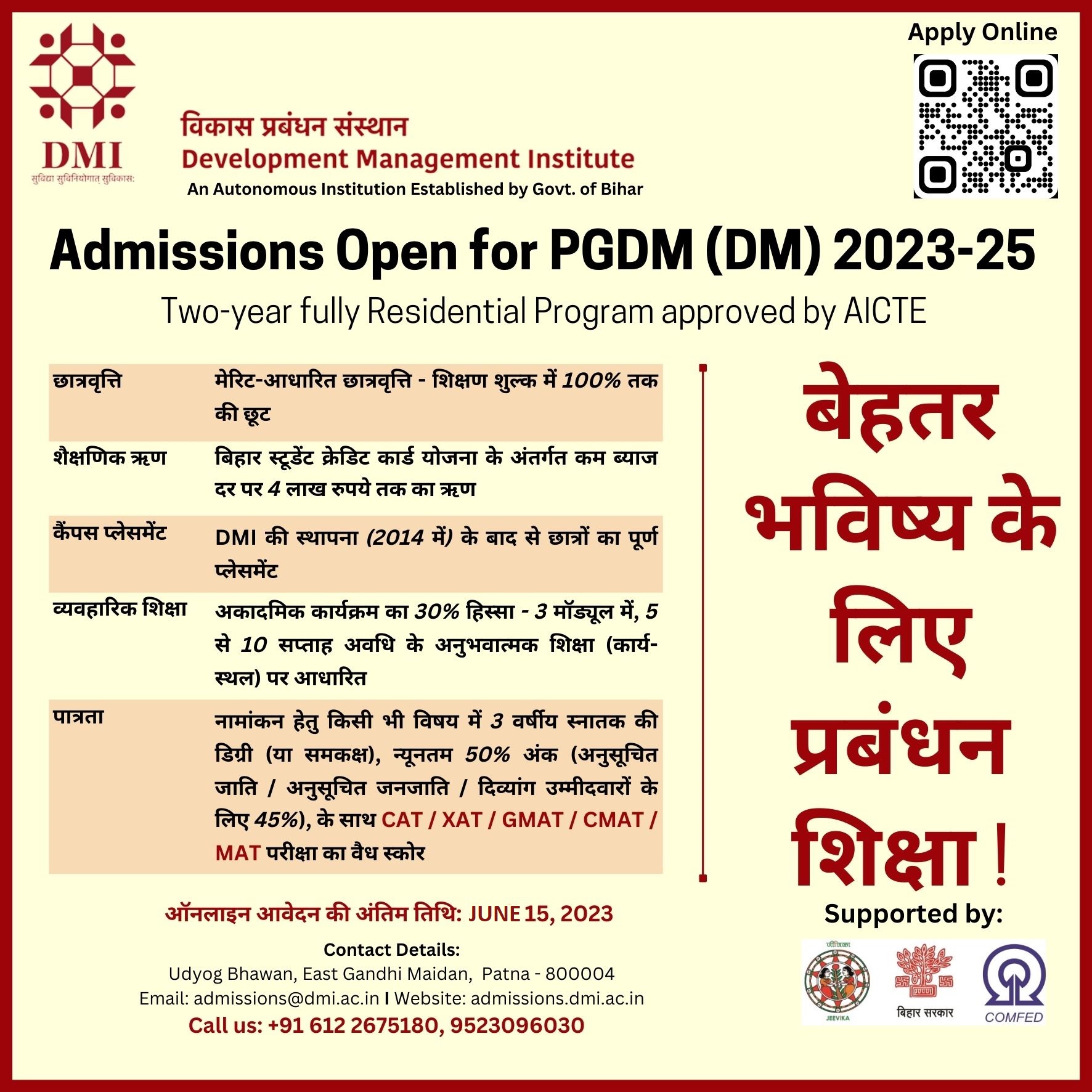
Topic: Experiences from conducting Third-Party Project Evaluation
To Register: Click here
| Speaker's Profile | Event Schedule |
| Click to view | Click to view |
DMI has conducted a workshop on “Evaluation Communication and Use” as part of the gLOCAL Evaluation Week during the year 2019.
In continuation to our earlier efforts, we are glad to host a workshop on knowledge on local monitoring and evaluation as part of this year’s workshop. The format is more like a dissemination workshop keeping in mind our participants JEEViKA, PRADAN, and other nonprofit and non-governmental developmental organizations as participants.
The theme that we choose for this workshop is “build forward better”, particularly, “How can evaluation help decision makers and other stakeholders to make better informed decisions to ‘build forward better’?
The workshop intends to highlight the importance of monitoring and evaluation of projects to “build forward better”. The evaluation of the intended project outcomes requires extensive information on pre and post project interventions and projects that have proper monitoring efforts put in place tend to perform better on the outcomes. Given that most project evaluations are done by third party agencies who are not related to the key stakeholders and the project intervention, the absence of information on pre and post scenarios or absence of proper monitoring mechanism, or lack of appropriate indicators all seriously limit the efforts of agencies that undertake the project evaluation. Project evaluation alone as a contractual task then stretches the imagination of the evaluation team to circumvent the shortcomings to assess the promised deliverables by the implementing agencies as outcomes of the project interventions.
We present three such case studies where the evaluation of projects or government programs were carried with a pragmatic approach more than an innovative approach so that the project implementing, and monitoring agencies can benefit in “building forward better”.
As part of this workshop, we plan to have three case presentations:
Case Study (1)
The first case study is on “Third Party Evaluation of 29 Centralized Kitchens and 15 % related Schools Serving Mid-Day Meals to Bihar Schools”. The study is limited to a certain geography of Bihar and it required evaluating the hygiene factors, practices followed in the kitchens, and the fulfilment of objectives of providing nutritious food to the school children. The study uses a mixed methods approach with extensive triangulation of data to develop a set of indicators that help rate the schools on green for good, yellow for average, and red for poor. The model can be adopted by all the kitchens across the nation or the country to continuously monitor their performance in their pursuit of providing nutritious and quality food.
Case Study (2)
The second case study is about an end-term evaluation of a CSR funded project to empower women and their health, enhance incomes of beneficiaries, particularly farmers, and promote education and technology in a sustainable manner. Neither the baseline data nor the internal data on evaluation were available with the implementing agency and it made evaluation of the project extremely difficult. Time was another major constraint. How the difficulties were overcome to the possible extent and what care has been taken to report the findings all constitute a learning experience.
Case Study (3)
The third study focuses on improper and inefficient handling of cattle dung resulting in high release of methane and global warming in rural communities notwithstanding the cash-outflow from the villages for energy. Production of bio-gas and slurry an organic manure is a time-tested technology to overcome these ills. Its rapid adoption across a large number of households and minimization of net cash out-flow from household and village and creation of a circular economy has become important. Towards this objective an organization that works with women dairy farmers decided to carry out a study on the adoption and usage practices before and after setting up of these units as well as study the spillover effect if any. The baseline and endline surveys entails carrying out a structured assessment of resources committed for a specific goal and gathers information at micro level and tries to understand the process and measures the outcome. The study is vide a panel data consisting of 50 beneficiary households in two villages along with a control group. The intent behind this monitoring and evaluation exercise is to generate evidence for informed decision making by a larger group of farmers.
None of the above projects mentioned above have a monitoring component and all of them are evaluation projects and little data was made available for the evaluation teams. It is in this context the workshop addresses the following questions:







